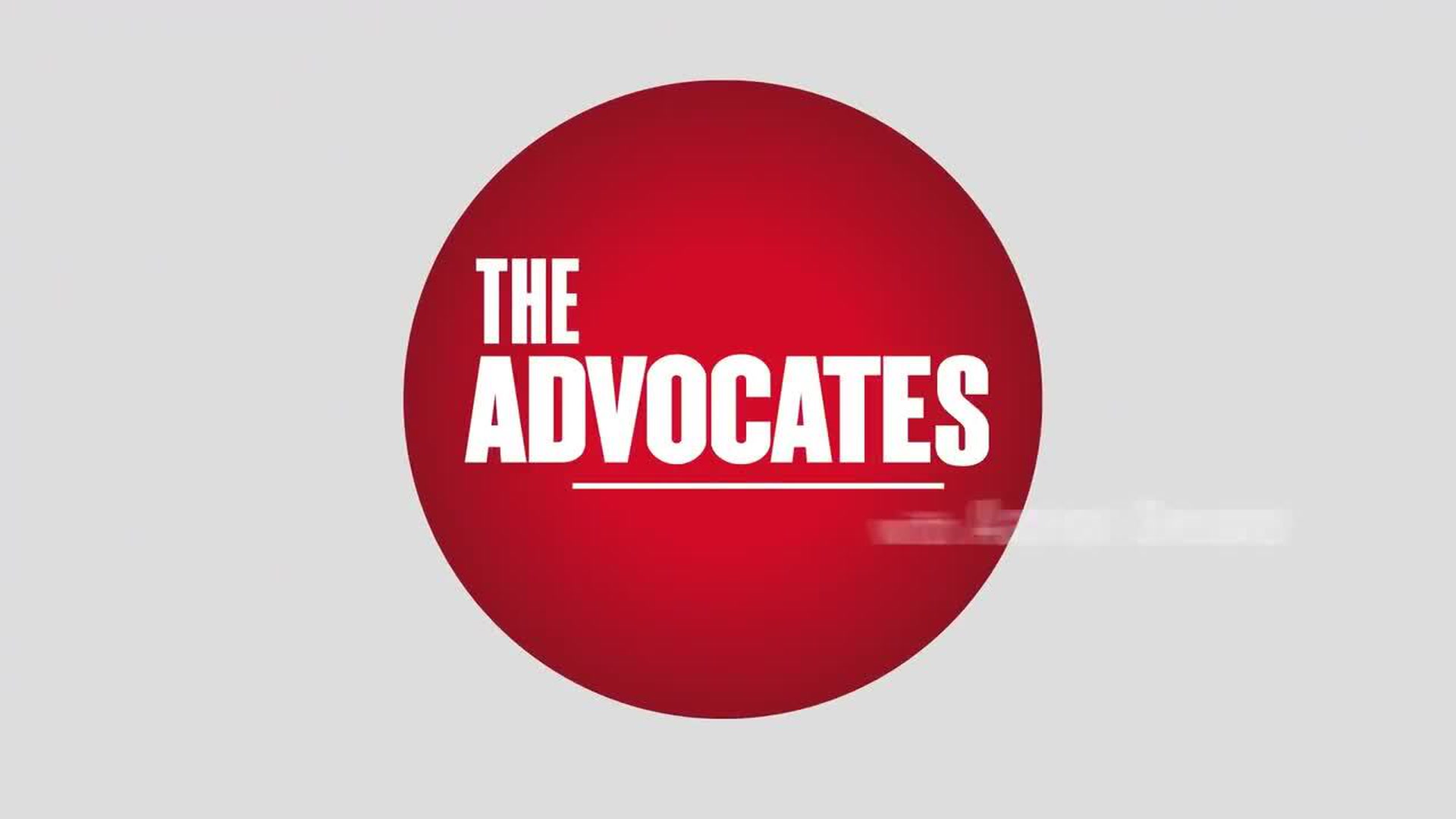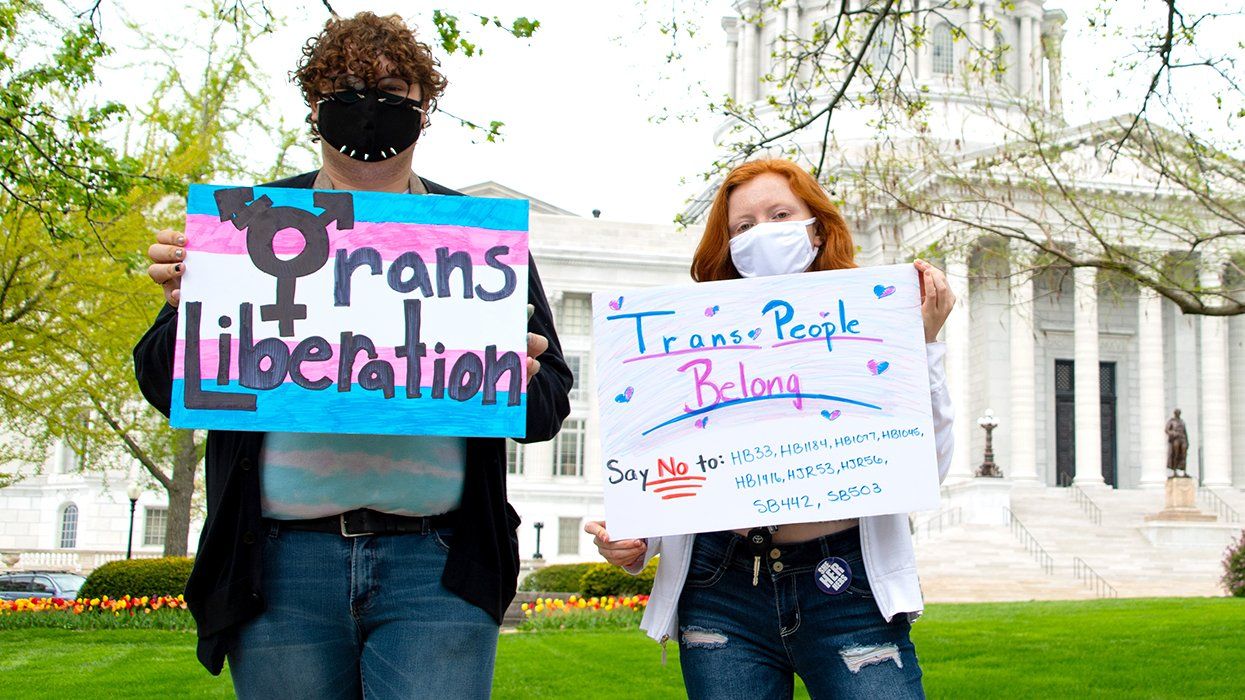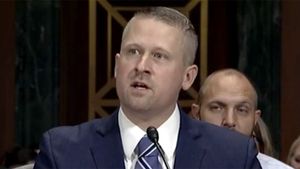
Video Source: Advocate Channel
(CNN) - Several Tennessee families and health care providers asked the Supreme Court on Wednesday to declare unconstitutional the state’s ban on gender-affirming care for minors.
The ban, which was initially blocked by a federal judge but later allowed to go into effect by an appeals court this summer, is one of more than a dozen such measures enacted in recent years that impose restrictions on gender-affirming care for transgender youth. It’s an issue the Supreme Court will have to consider at some point in the near future.
Should the justices decide to take up the Tennessee case, it would be the first time they’ve scrutinized such a law and their most-high profile case related to transgender Americans since 2020.
“Transgender adolescents like Petitioners have been receiving such care for decades. But in the past three years, Tennessee and 20 other states have banned these treatments altogether, forcing families to upend their lives and move out of state to ensure that their children get the medical treatment they need,” attorneys for the Tennessee law’s challengers told the justices in court papers.
“The legal uncertainty surrounding this medical care is creating chaos across the country for adolescents, families, and doctors,” they added.
Gender-affirming care spans a range of evidence-based treatments and approaches that benefit transgender and nonbinary people. The types of care vary by the age and goals of the recipient, and are considered the standard of care by many mainstream medical associations.
The Tennessee law, SB1, says that medical providers in the state cannot perform procedures which “enable a minor to identify with, or live as, a purported identity inconsistent with the minor’s sex” or “treat purported discomfort or distress from a discordance between the minor’s sex and asserted identity.”
A federal judge in Tennessee had temporarily blocked part of the law in this summer, saying that the law likely violated the Constitution’s Equal Protection and Due Process clauses. But the 6th US Circuit Court of Appeals undid that decision shortly thereafter and later reversed the district court’s findings altogether.
“In holding otherwise, the Sixth Circuit created a clear divide among the courts of appeals on this critical issue with far-reaching implications,” the law’s challengers told the justices.
The Supreme Court is not required to take up the case. Even when so-called circuit splits make cases ripe for review, the court sometimes declines to add them to its docket.
Still, some of the court’s conservative members have appeared eager to take up cases concerning transgender Americans.
Earlier this year, Justice Samuel Alito, joined by Justice Clarence Thomas, publicly disagreed with the court’s decision to not take up a case concerning a transgender woman’s lawsuit against a Virginia prison, connecting a lower-court decision in that case to similar issues likely to come before them.
“This decision will raise a host of important and sensitive questions regarding such matters as participation in women’s and girls’ sports, access to single-sex restrooms and housing, the use of traditional pronouns, and the administration of sex reassignment therapy (both the performance of surgery and the administration of hormones) by physicians and at hospitals that object to such treatment on religious or moral grounds,” Alito wrote in a dissent that was joined by Thomas.
In pushing the health care bans like the one in Tennessee, Republicans have argued that decisions around such care should be made after an individual becomes an adult.
“We look forward to litigating this case to the fullest extent necessary,” said Amy Lannom Wilhite, a spokesperson for Tennessee Attorney General Jonathan Skrmetti, who is a defendant in the case.
The families and health care providers challenging the Tennessee law stressed on Wednesday how critical gender-affirming care is, with one of the minors at the center of the case making a personal appeal to the justices to take up the dispute.
“I’m fighting this law because I know how important this care is for tens of thousands of transgender youth like me,” the 15-year-old, identified as L.W., said in a statement. “I want the Justices to know transgender people are not going away and that we deserve the same rights as everyone else.”
The-CNN-Wire
™ & © 2023 Cable News Network, Inc., a Warner Bros. Discovery Company. All rights reserved.
- Jinkx Monsoon & BenDeLaCreme Defend Drag Queens Against Republicans: 'Our Weapon Is Our Uniqueness' ›
- 'Elle Campbell Wins Their Weekend' Introduces Nonbinary Identity & Joy to Grade-Schoolers ›
- New House Speaker Mike Johnson's Anti-LGBTQ+ Record Is Worse Than You Think ›
- Living Without Regret: The Truth About Top Surgery in Trans Youth ›


















































